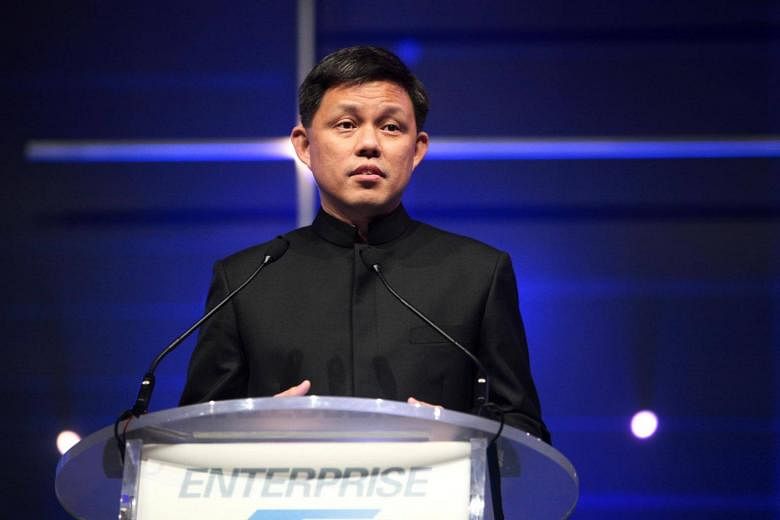As opposition to globalisation increases, Singapore remains focused on becoming even more open and connected to the rest of the world, said Mr Chan Chun Sing, Minister in the Prime Minister's Office.
Mr Chan told an awards dinner last night that increasing connectivity will be a key plank of Singapore's strategy, one reflected in the Committee on the Future Economy report expected next year.
He said the wave of anti-globalisation arising from recent political developments in the United States and Europe has created a climate of anxiety for business.
Mr Chan, who studied economics at Cambridge, said the issue harks back to the 1960s and 70s, when economists debated whether to pursue import substitution or export-oriented strategies.
Singapore "never worried about this because we never had a choice", he said. "Our market is too small for us to even consider or contemplate an import substitution strategy. It was the same in 1965 and it is the same today.
"Our strategy remains one of being an open and connected economy to the rest of the world."
Mr Chan, who was speaking at the Enterprise 50 awards gala dinner at Resorts World Convention Centre, noted that if Singapore could master connectivity beyond the air, sea and land to include data and financial connectivity, it will be able "to transcend our geography and overcome our resource limitations as a small city state".
But he warned that the gains of globalisation are uneven, so Singapore must get its fundamentals right to ensure "we progress as one nation".
He told the 1,200 or so guests that Singapore has to get three key areas right - its governance model, businesses and workers.
Governance and regulations need to enable "good, innovative practices", instead of being restrictive.
"Regulation is not just a defensive play of restricting bad practices, but it can be an offensive play to ensure good innovative practice."
He stressed that Singapore must "maintain our fiscal discipline" even as its needs get more demanding. That will mean being "surgical" in focusing on areas of most need.
He also urged the crowd of business leaders at the dinner to take advantage of "the Singapore brand".
"When you go overseas to compete... you also compete on the brand Singapore - a brand that speaks of trust, quality, standards and efficiency."
The third pillar for success is workers, he said, to deal with the challenge to help "tomorrow's unemployed", who might be displaced by technological and business model disruption, into "tomorrow's jobs".
Singapore's challenge was not about creating jobs, but about the matching of jobs, he added.
"At any point, we have three million jobs but barely 2.2 million adult workers. The crux is whether Singaporeans can get into the jobs that they aspire to be in."
He was optimistic about Singapore's chances in overcoming future challenges, adding that Singapore has the "resources, tripartite network... determination and focus" to emerge stronger through the downturn.


